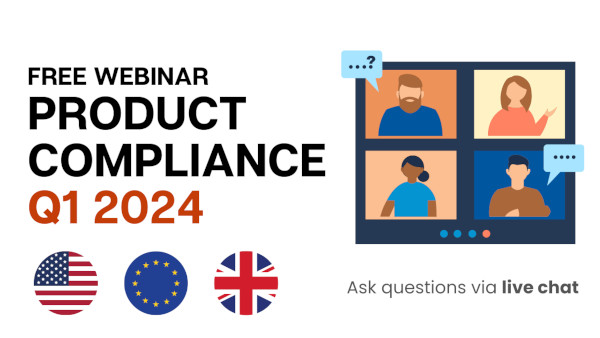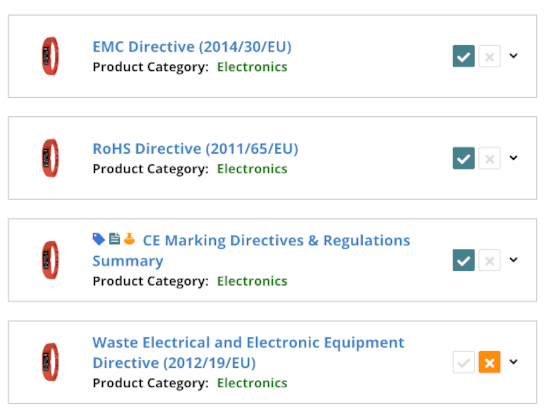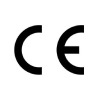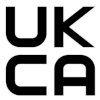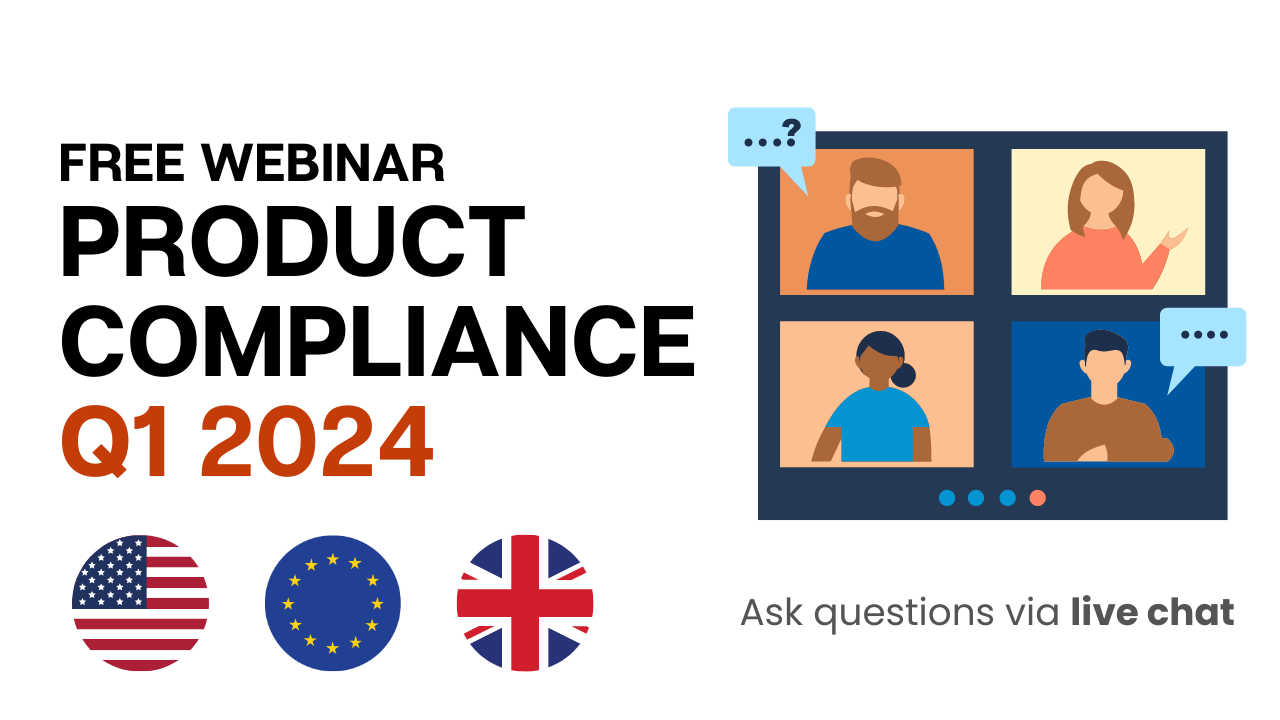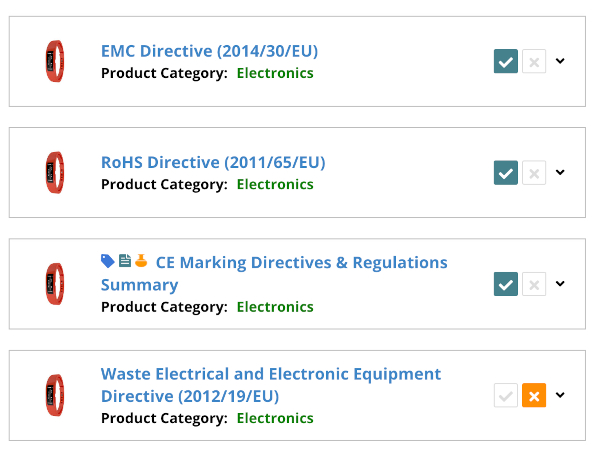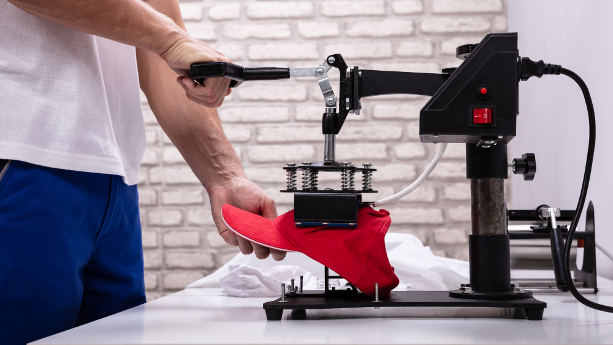
Private label products – also known as Original Design Manufacturing (ODM) products – are based on pre-existing tooling (e.g. injection molds) but carrying the customer’s logo. In recent years, private label products have been especially popular among Amazon sellers and other importers that don’t have the resources or expertise to develop their own products.
Some sellers are also under the impression that private label (ODM) products give them a free pass when it comes to ensuring that the product is fully compliant. This is not the case, as private label products are covered by the same safety standards, labeling, and documentation requirements as other products.
Keep reading, and learn what works and what doesn’t when it comes to product safety and compliance for private label (ODM) products.
Content Overview

FREE CONSULTATION CALL (US, EU & UK)
- Request a free 30-minute call with Ivan Malloci to learn how we can help you with:
- Find product requirements
- Certification and labeling
- Lab testing
What is a private label or ODM product?
Generally speaking, private label (ODM) products are factory standard products made using existing tooling. For example, a watch made using a pre-existing mold and other standard components could, therefore, be classified as a private label product.
Private label products are also known as Original Design Manufacturing (ODM) Products.
That said, private label products also carry the customer’s brand. Products can also be partially made using new tooling, and existing tooling.
Here are some common private label product categories:
- Electronics
- Watches
- Jewelry
- Furniture
- Kitchen utensils
- PPE
- Medical devices
- Machines
That said, private labeling is less common when it comes to softline products:
- Apparel
- Home textiles
- Bags
What are some benefits to buying private label (ODM) products?
The main benefit is that you’ll save money on tooling. Injection molds and other tools can cost thousands of dollars, and sometimes it’s unnecessary to reinvent the wheel. In addition, you can also get your product to market faster than if you’ll need to buy new molds or other tooling – a process that can take several months.
For example, developing a new OEM electronic product can cost tens of thousands of dollars. It’s therefore unnecessary if you intend to sell something that’s already out there – which is what a large number of Amazon sellers and other businesses do.
That said, private labeling is less common in industries without expensive toolings, such as clothing and textiles.
Do the same product safety standards apply to private label (ODM) products?
Product standards and other rules normally don’t distinguish between custom-designed products or private label (ODM) products. As such, you should always assume that you need to comply with all certification, lab testing, labeling, and other requirements – as if you designed the product from scratch.
Is the importer or manufacturer responsible for ensuring compliance?
This depends on the product and regulation. For example, the Consumer Product Safety Improvement Act (CPSIA) in the United States doesn’t distinguish between private label or non-private label products. All businesses importing children’s products to the USA must follow the same process. It doesn’t matter who designed the product or owns the molds.
When it comes to CE compliance in the EU, however, this is actually something that plays in. Generally speaking, importers can use the supplier’s Declaration of Conformity, test report, and technical file – assuming the product is a factory brand.
However, if you apply the customer’s brand to an existing product – which is the very definition of a ‘private label product’ – then the importer becomes the legal manufacturer. This means that the importer is then fully responsible for all CE documentation.
What if my supplier is already exporting the same ODM product?
Some suppliers claim that lab testing is not necessary, simply because they’re “already exporting the product to customers in other countries”. Even if that’s true, it’s not considered the “same product” unless it’s the same brand and production run.
In short, this argument is not a free pass to import and sell a private label product that is not tested or correctly documented, simply because they are already selling the product to other buyers.
What if the exact same ODM product has been tested and certified by other importers?
It may sound counterintuitive, but the fact that other buyers sell the “same product” doesn’t necessarily prove or even indicate that your private label product is compliant. Here are a few reasons:
Simply because the product looks the same as something that’s already on Amazon, or elsewhere, doesn’t make it so. Even the slightest difference in materials and components means that it’s technically not the “same product”.
It’s not the same product if it’s manufactured by a different company. Keep in mind that most private label products are based on OEM products that are freely available on the market – rather than the result of R&D conducted by a single supplier.
You cannot use test reports and compliance documents held by other companies. It’s very unlikely that any company would be willing to share test reports and other compliance documents with a competitor. However, such documents are generally tied to the specific importer or domestic manufacturer and cannot be “transferred” to a different entity.
Finally, the fact that the product carries your brand often means that testing and certification are mandatory.
Can I use test reports from the supplier when selling private label (ODM) products?
This depends on the product, market, and regulation. In some cases, using a pre-existing test report is not an option as periodic batch testing is mandatory. That said it can be acceptable for some products – as long as the test report is valid for the exact same product. The problem is that this is quite rare.
How do I verify if a private label product is compliant?
You can either request the supplier’s pre-existing lab test reports or submit the product for third-party lab testing. My experience is that few suppliers can provide existing lab test reports for private label products.
Even if they can, it’s most likely only for a few products. Keep in mind that a test report is only valid for a certain product/SKU and not every single item made in their factory.
Lab Testing
As such, third-party lab testing is often the only realistic option. Luckily, companies like QIMA and Intertek offer such services. I also recommend that you ask your supplier for feedback concerning the compliance of their product. Their engineers might know if a product can and cannot pass lab testing – which is important to know before you book a test.
Otherwise, you may waste your time and money getting a product that is simply not designed with the relevant standards in mind.
Product Labeling
Notice that private label products must also carry the same compliance marks as other products. Here are a few examples:
- CE mark (EU)
- WEEE symbol (EU)
- Country of origin (USA)
- FCC Mark (USA)
- Textiles Care Label
- CPSIA Tracking Label (USA)
- Food contact material symbol
Importers should not assume that private label products are by default labeled according to the European Union, United States, or other labeling rules. This is the case even if the product is technically compliant and can pass lab testing.
You can learn more about labeling requirements here:
- United States Product Labeling Requirements
- European Union Product Labeling Requirements
- Product Labeling Requirements in Australia
How much does it cost to test a private label product?
Whether it’s a private label product or not has no impact on the testing costs whatsoever. Ultimately, it comes down to the product type, materials, and components.
These guides include examples of product lab testing costs:


